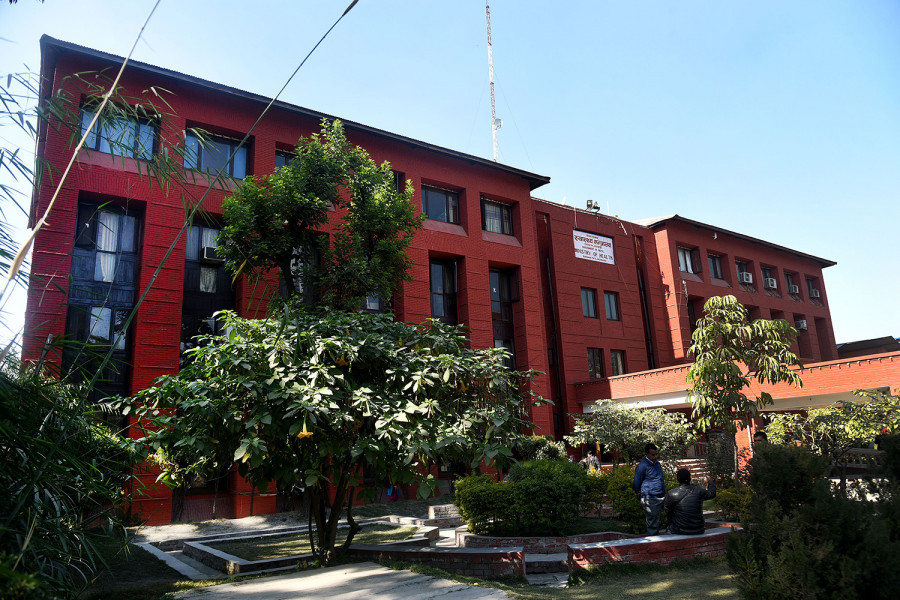Health
Government is not spending enough to prevent and treat non-communicable diseases
Sixty-six percent of all deaths in Nepal are caused by non-communicable diseases, a 2017 study found.
Arjun Poudel
Two out of three deaths in Nepal are caused by non-communicable diseases. The country’s burden of non-communicable diseases has been ever-increasing. But the Ministry of Health and Population has not allocated any budget to deal with the growing disease burden.
"We have to organise programmes on non-communicable diseases from the budget allocated for epidemic control or leprosy or vector-borne diseases," said Dr Bibek Kumar Lal, director at the Epidemiology and Disease Control Division. "We do not have any budget specifically allocated for non-communicable diseases."
Nepal Burden of Disease-2017, a study report published by Nepal Health Research Council, shows that non-communicable diseases are the leading causes of death—66 percent of all deaths. Among the non-communicable diseases, heart disease, chronic obstructive pulmonary disease, lower respiratory infection and stroke are the leading killers.
The study shows changing age structure and lifestyle—increasing sedentary behaviour, tobacco and alcohol use, and unhealthy diets—are the main risk factors for deaths and disabilities.
The division lacks budget as well as experts—cardiologists, psychiatrists, pulmonologists, oncologists and others—to deal with non-communicable diseases.
"Due to a lack of budget and experts from the related fields, we have been unable to carry out effective work on non-communicable diseases and meet the health goals," said Lal.
Gagan Kumar Thapa, a Nepali Congress lawmaker and former health minister, said all the problems in the health sector are a result of the failure of the incumbent leadership at the Health Ministry.
"The health minister should be able to explain the rationale behind every programme introduced to improve the country’s health care sector."
The health sector does not seem to be a priority, as the government has allocated just 4.48 percent of the national budget for health for public health in the current fiscal year. This is too low compared to the World Health Organization's recommendation of allocating 10 percent of the total budget to the health sector. Among the allocated budget, officials say a huge chunk is spent on salaries of the staff.
Dr Yashovardan Pradhan, former director-general at the Department of Health Services, said the health ministry did not seem serious about bettering public health and preventing and treating non-communicable diseases. "The government should allocate sufficient budget and appoint focal persons to deal with the disease burden," said Pradhan.
Dr Bikas Devkota, chief of Policy, Planning and Monitoring at the Health Ministry, said just because the Epidemiology and Disease Control Division was not getting budget did not mean that the ministry was not spending money on non-communicable diseases.
"Several divisions under the Department of Health Services and hospitals are spending a huge amount of money for the treatment of non-communicable diseases,” said Devkota. "We will correct our mistake and allocate budget and authority to the division to coordinate among various agencies for the effectiveness of the programmes."




 20.12°C Kathmandu
20.12°C Kathmandu















